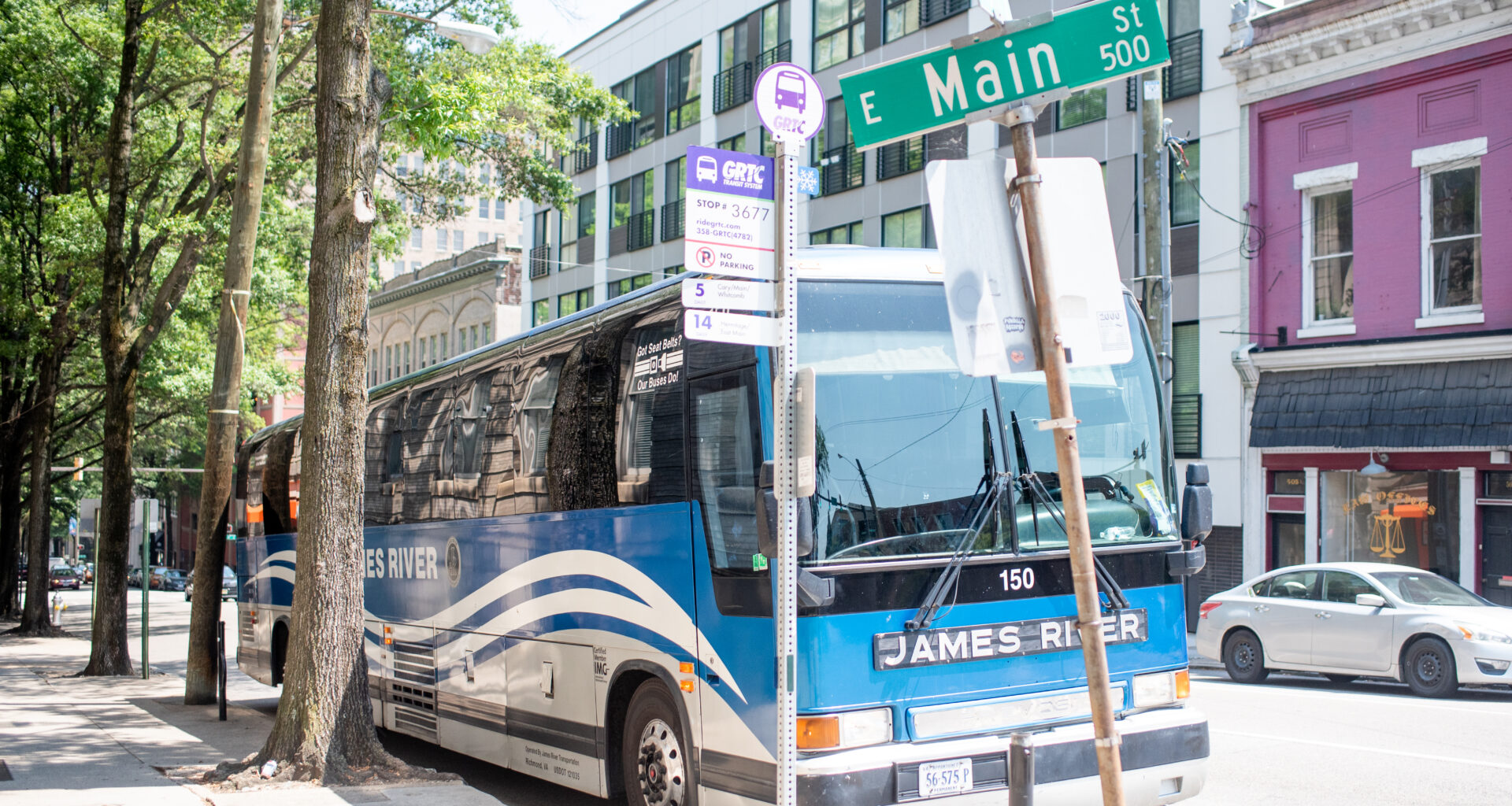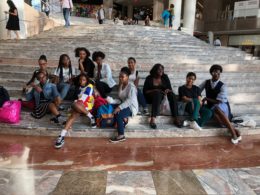When incarcerated individuals stay connected with their families, rates of recidivism – meaning the tendency for criminals to reoffend – decline.
Since 1978, Assisting Families of Inmates (AFOI) has been the connecting, at times missing, link for families across the state of Virginia. Its mission is to support underserved families of the incarcerated by providing meaningful visitation, family assistance and children’s programs, aimed at fostering an environment conducive to both individual and family healing.
“It becomes both a prevention and an intervention effort,” said Fran Bolin, executive director of AFOI. “If you collectively work with children, families and incarcerated individuals, then the whole process should be more successful for all involved. And whether that matters to you from your heartstrings and a family perspective, or if it matters to you from a taxpaying perspective, it should matter to all of us if we want a more vibrant and safer community.”
It’s more than just reducing recidivism. For Bolin and the rest of the team, AFOI and the impact it has on families is personal.
“Walking with families through this difficult time demonstrates just how underserved, stigmatized and isolating it can be to walk through this period of incarceration with a loved one,” said Michelle Donachy, director of development. “These systems in themselves can be really hard to navigate.”
In its over 40 years of operation, AFOI has helped break down systemic challenges and barriers facing families of the incarcerated.

From Then…
Before technology made it possible to connect with loved ones virtually, or public transportation was easy to come by, the first obstacle for families of the incarcerated was a geographic one.
Since 1978, and still today, state prisons have been located in isolated, rural areas, making it hard for families, especially ones facing financial insecurity and without personal transportation, to secure safe and trustworthy transportation for visitation. In many cases, inmates were left behind and families were forced to move on with their lives – with little support from the community.
That is until a grassroots, faith-based effort entered the picture.
Thomas A. Edmonds spent the mid-1970s volunteering to help prisoners’ families with an organization in Florida. When he returned to Richmond, he saw a similar need and mobilized fellow members of Second Presbyterian Church, and the Downtown Cooperative Ministries, to begin driving families to and from prisons to visit their incarcerated loved ones.
What grew out of one congregation’s efforts became what is known as AFOI today. And providing transportation remains a major component of its work.
…To Now
With eight full-time staff members, several part-time staff members, volunteers and intern cohorts from the VCU School of Social Work, AFOI is able to reach families throughout the state and develop new programs to help address needs as they arise.
Visitation
On top of providing rides to facilities across the state, AFOI works closely with the Virginia Department of Corrections (DOC) to offer virtual visitation services. This added element makes maintaining connections more convenient, accessible and family-friendly.
In many ways, AFOI’s services for juveniles follow suit. Bon Air Juvenile Correctional Center is the last remaining institution for the Virginia Department of Juvenile Justice, and AFOI facilitates and coordinates transportation services from around the state. It’s currently working with the facility to implement its first permanent video visitation system.
Because Bon Air is the only facility for Virginia juvenile residents, residents’ families are based all over the state – making this virtual option a critical step in family reunification.
MAC Children’s Program
One of the most popular, growing programs at AFOI is affectionately called “Milk and Cookies.”
MAC is a school-based small group support program currently for children in elementary schools in the city of Richmond. Dating back to 1999, the program was a result of a needs assessment done in the Blackwell community of Richmond – which found four in 10 children had an incarcerated parent and seven in 10 children had an incarcerated relative.

“When a child loses a parent to, say, death or divorce, folks are there [to support],” said Lisa Simes, director of programs. “There’s such a stigma that goes with incarceration, but it is a loss and a trauma, it’s a great loss for students. So, they’re able to share amongst their peers in a small group support setting.”
As the new school year begins, AFOI is excited to bring the program to two more schools this year, bringing the total to seven Richmond elementary schools. Fourteen interns from the VCU School of Social Work will be co-facilitating at each of the school sites.
AFOI is exploring ways to expand the program to middle schools, and eventually, beyond Richmond.
“We’ve been working as an agency to virtualize the curriculum, because we have other localities saying, ‘Wow, how do we get the program? I’ve never seen anything like that,’” Simes said. “We want to get it out there to other communities, locally and even nationwide. We’re also working on expanding to middle schools and would love to see it offered, in some capacity, at every level of education.”
Reunification
AFOI is constantly evolving to meet the needs of families across the commonwealth. Through community outreach and family and stakeholder surveys, AFOI sets its sights on new projects like outfitting state facilities to support the reunification process for incarcerated mothers and expectant mothers.
- Last year, it helped bring to life the new family reunification house at the Virginia Correctional Center for Women.
- AFOI introduced a 12-week program that works to strengthen relationships and build trust among incarcerated mothers and their minor children. The pilot cohort just graduated and mothers in the program will be returning to their communities within the next six months.
- For women who are incarcerated while pregnant, if their sentence is 24 months or less, their baby will be able to stay with them – thanks to a brand new nursery coming to the Virginia Correctional Center for Women this fall.

Get Involved
Even though incarceration impacts an estimated 65,000 families in the state of Virginia, there is still significant stigma surrounding the issue.
“One of the challenges we have when trying to garner support for the organization is how hung-up people get even on the name, Assisting Families of Inmates,” Donachy said. “They lose the beginning, our focus on children and families, and all they hear is inmates.”
“Any one of us could make a bad decision and be on the other side of the table. It helps you to realize just how much respect and understanding we need to give these underserved families.”
AFOI relies on its network of volunteers, donations and support from the community to make an impact. Donations for each of its programs are accepted here. If you’re looking for more hands-on opportunities, learn more here.










